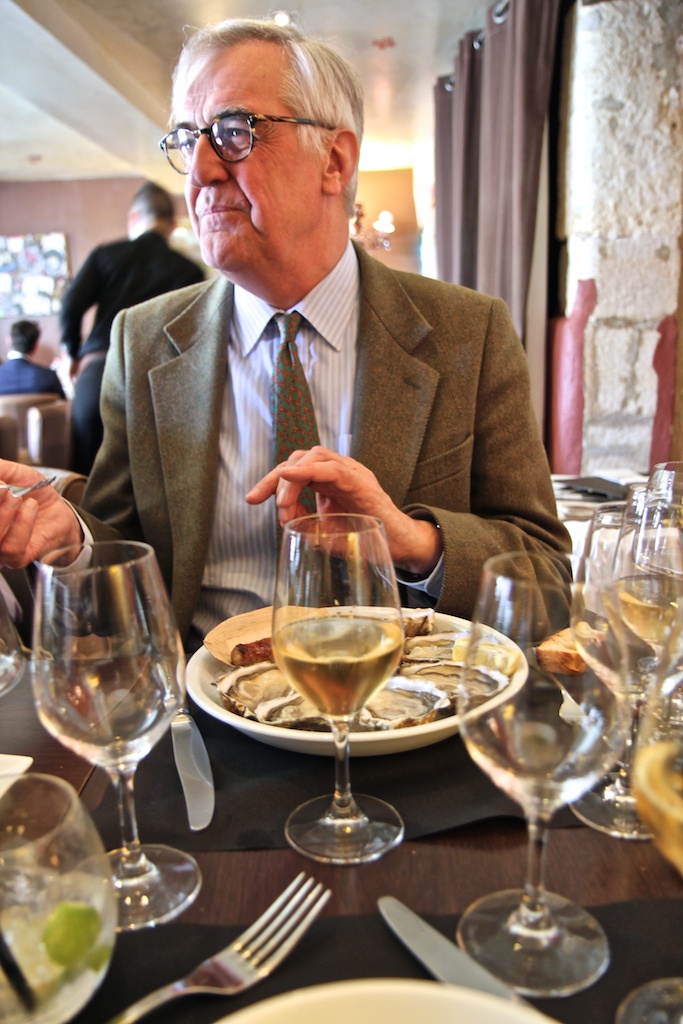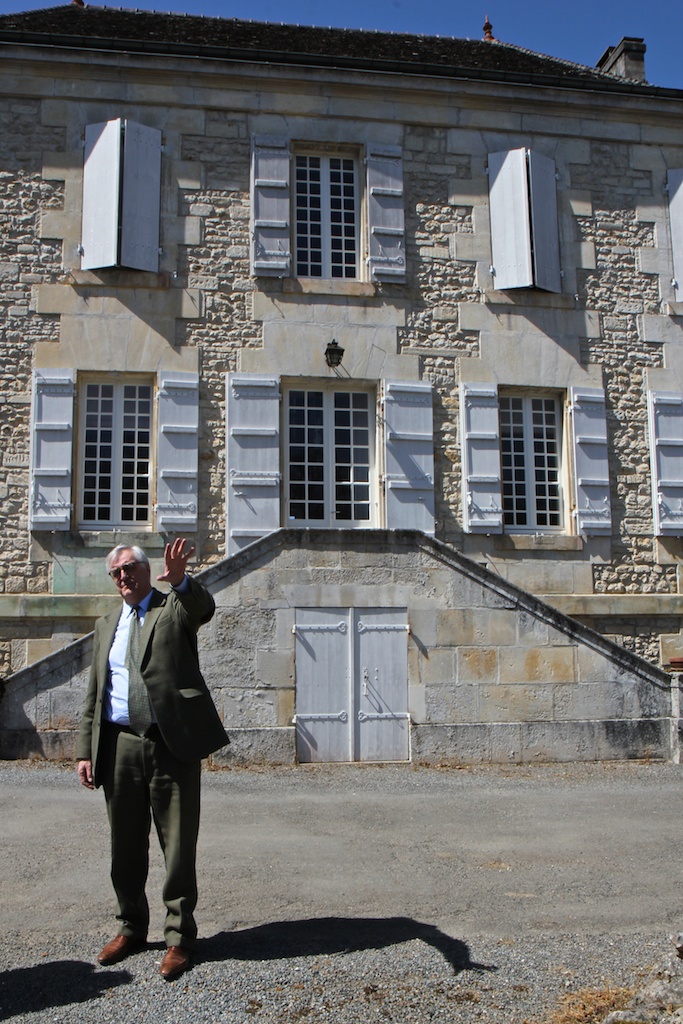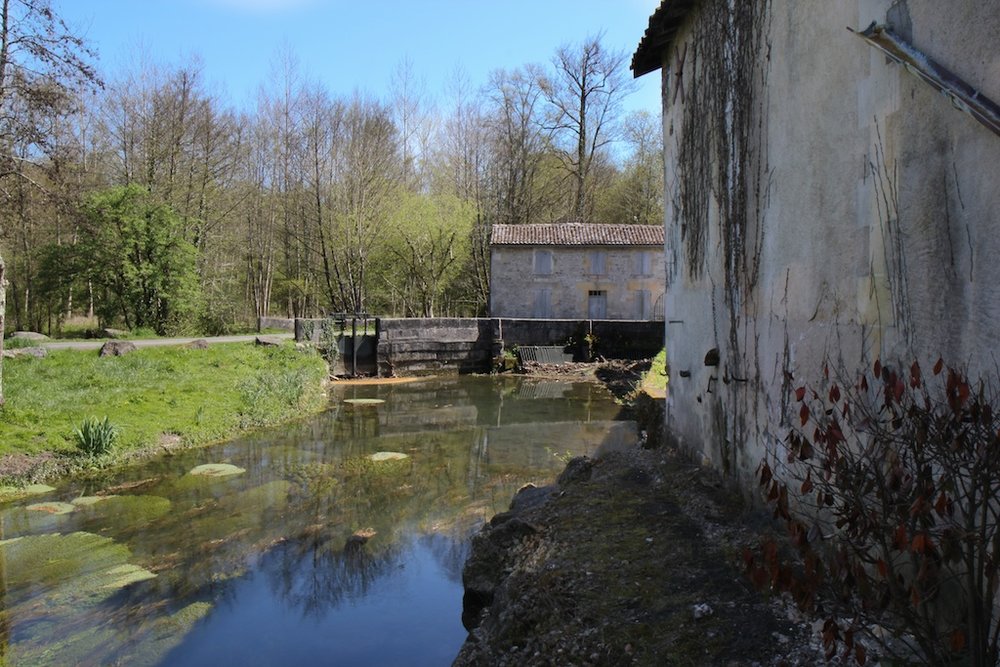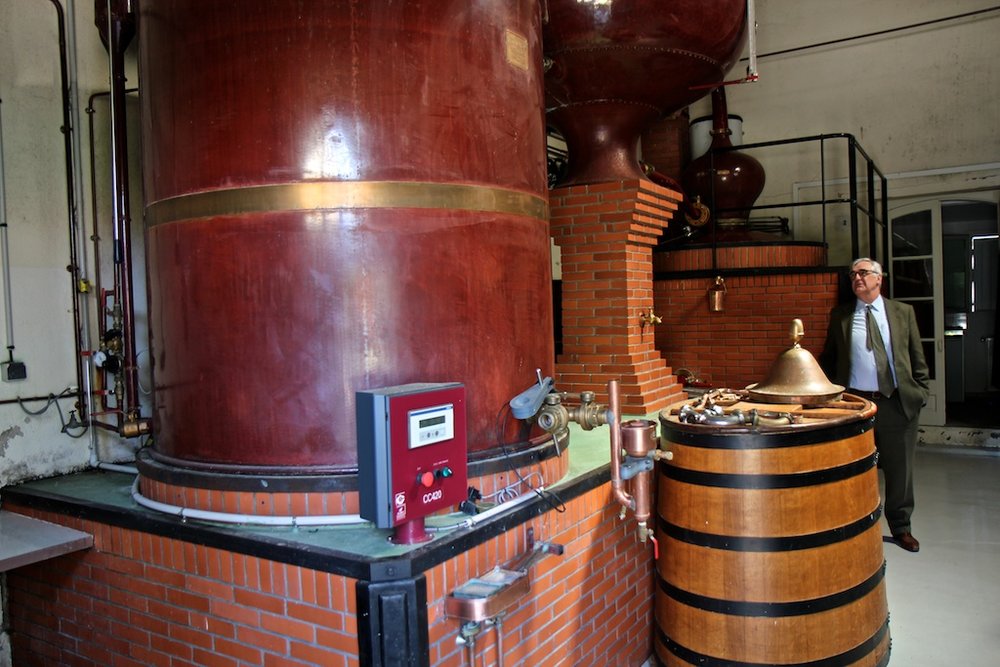France: Day 2 - Hennessy Seminar: Part I

I first met Maurice Hennessy at a dinner in San Francisco in 2014; a bottle signing event downtown. We hit it off almost immediately. I was just stopping by to say hello on my way home, but the LVMH rep invited me to eat with them and eventually I was seated next to Maurice himself. We naturally started talking about the business. He asked what I did, and I told him about K&L. An hour or so later I was still having trouble explaining to him why we struggle to sell Hennessy Cognac. He was intrigued by the conversation, however. Not many people had ever told him specifically that the larger and more successful the company, the harder it is to market. "But that's K&L for you," I said. "What works for everyone else doesn't work for us."
"So you will need to come to Cognac soon and let me show you around," he replied. "I promise it will be very different."
I smiled and thanked him for the kind offer, understanding that this was just polite small talk and that the kind invitation would never actually happen. Yet, eight months later, I found myself staying at Maurice's family estate, eating lunch with him at Bistro de Claude in downtown Cognac, getting ready for an in-depth look at the company's complex operation. Let's be honest here: in the new era of boutique alcohol, many customers assume that big is bad. They think something mass produced must equate to a lower quality. Corporate ownership means a lack of authenticity; the removal of anything endearing about the humble people making the product by hand. Because of this new way of thinking, our customers assume that anything produced from a gigantic Cognac house must be total slop compared to the small and rustic producers making tiny amounts of brandy on their own estate. "I need to see how Hennessy is actually made," I told Maurice, "because that's the only way I'll be able to convince our most discerning customers that this is not only the industry's largest Cognac producer, it's also one of the best."
"That shouldn't be a problem," he said with a smile.

2015 marks the 250th anniversary of the Hennessy house, which was founded in 1765 by Richard Hennessy; the forefather of Maurice. I knew that the company had something big in store for us, as they took my words as a personal challenge. They wanted to prove to me that Hennessy was as focused on boutique quality as any other producer in the region, despite their size and scale. I never in a million years thought they would ultimately give us complete and utter access to the entire operation. I never thought that Maurice would actually get behind the wheel himself, drive us to the house he grew up in, and show us around Angelier, home to Billarderie distillery—one of many small production centers Hennessy owns in the Cognac region. Yet, that's exactly what happened. We laid down the gauntlet, and LVMH responded with one of the most incredible days of booze education I've ever received.

Located in the heart of the Borderies, Angelier is one of the most idyllic places I've ever been in my entire life. It took my breath away and made my heart stop. "This is where I would fish as a kid, and take my canoe down the creek," Maurice told us. "We would even catch a trout every now and again."

And inside a small, rustic ediface on the property sits the distillery itself—a classic Cognac pot still. This is one of the small operations that distills the Borderies fruit growing in vineyards nearby. I had always believed that Hennessy had no control over their own distillation, but in fact they do indeed handle some of their own production.

Maurice himself also owns his own Grand Champagne vineyards near his home in the region, and we were treated to a private look at his estate. He is actually one of the 1500 small farmers who sell their brandy to Hennessy, part of the gigantic network of small operations that make the company what it is. "I like selling my Cognac to Hennessy," he told us. "Of course, I guess I could start my own little label on the side, but I couldn't well put my name on it, could I?" That might be a conflict of interest.
There's still a lot to talk about, but I've gotta run. More soon.
-David Driscoll
